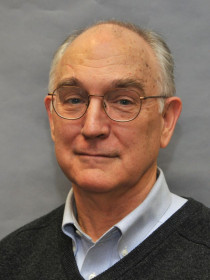
Arthur MacEwan
Connect with Arthur
About Arthur
MacEwan taught at the University of Massachusetts Boston from 1975 to 2008 and is currently professor emeritus in the Department of Economics. His range of courses included those on American economic history, macroeconomic issues in the United States, the economics of education, economic development of low income countries, and Marxist economics. He has written books on issues of international development and the recent course of the U.S. economy. MacEwan’s latest writings focus on economic inequality in both low income countries and the United States, and on the connection between economic and political power. He has also been engaged in work on the evaluation of social programs dealing with homelessness prevention and neighborhood development in Boston. In addition to his academic work, MacEwan has held various positions in the Faculty Staff Union at the University of Massachusetts Boston, serving as member of the bargaining team, grievance officer, vice president and president. He also continues to be involved with Massachusetts Teachers Association as a retired member.